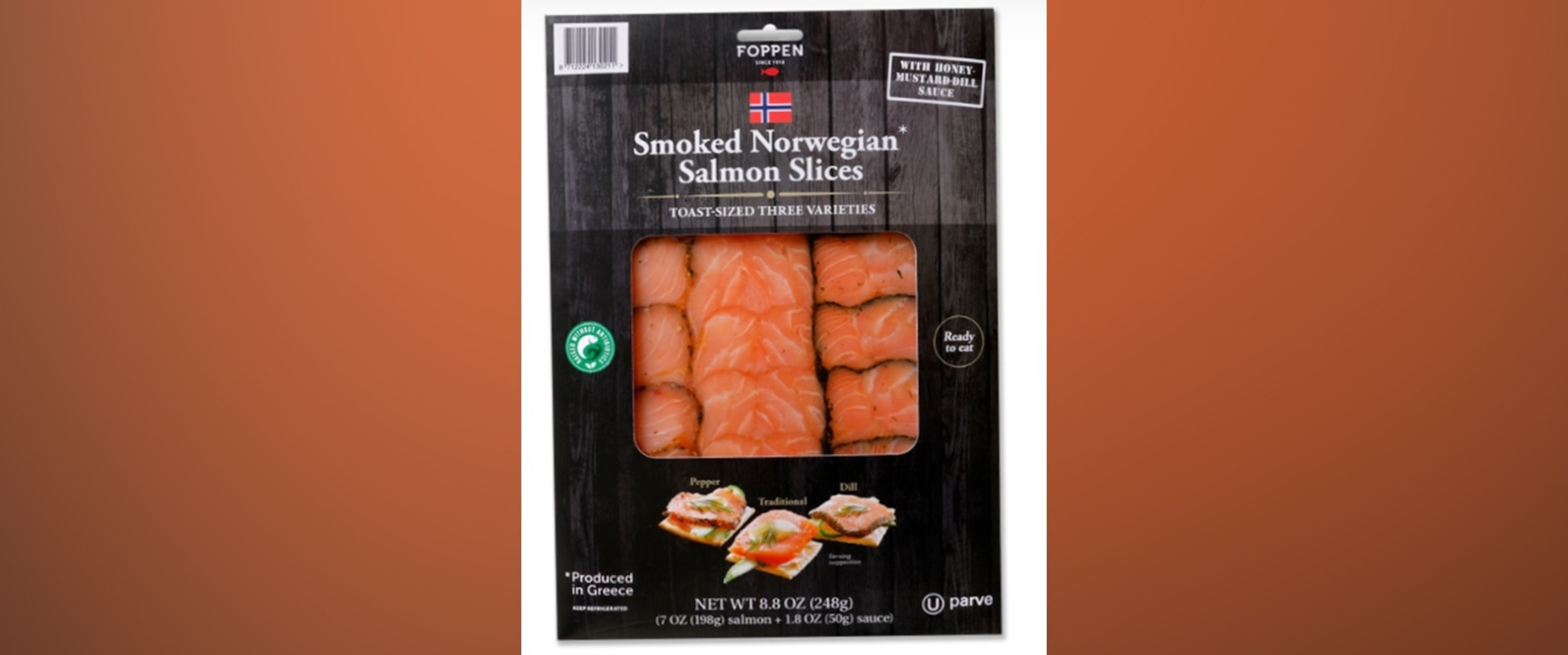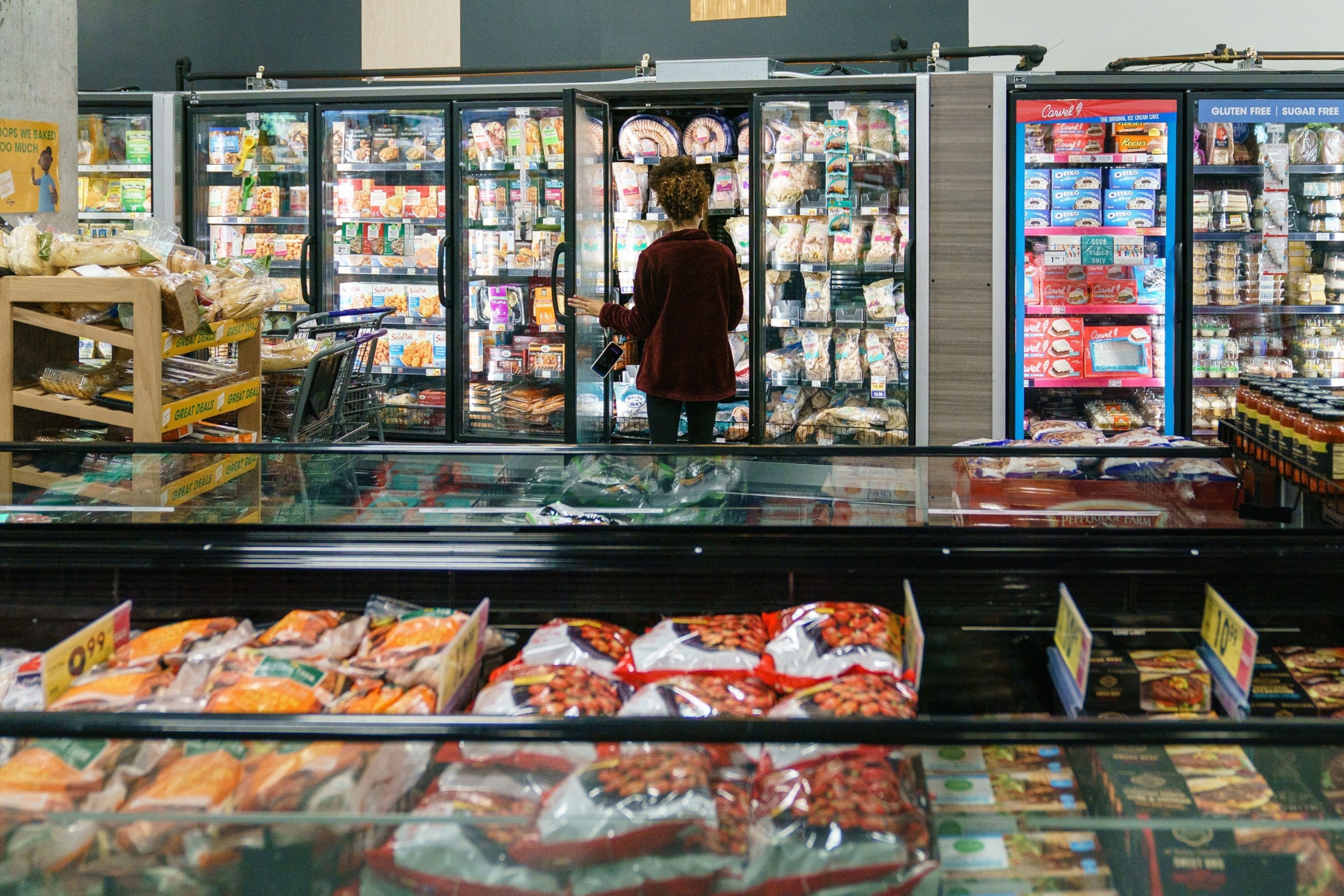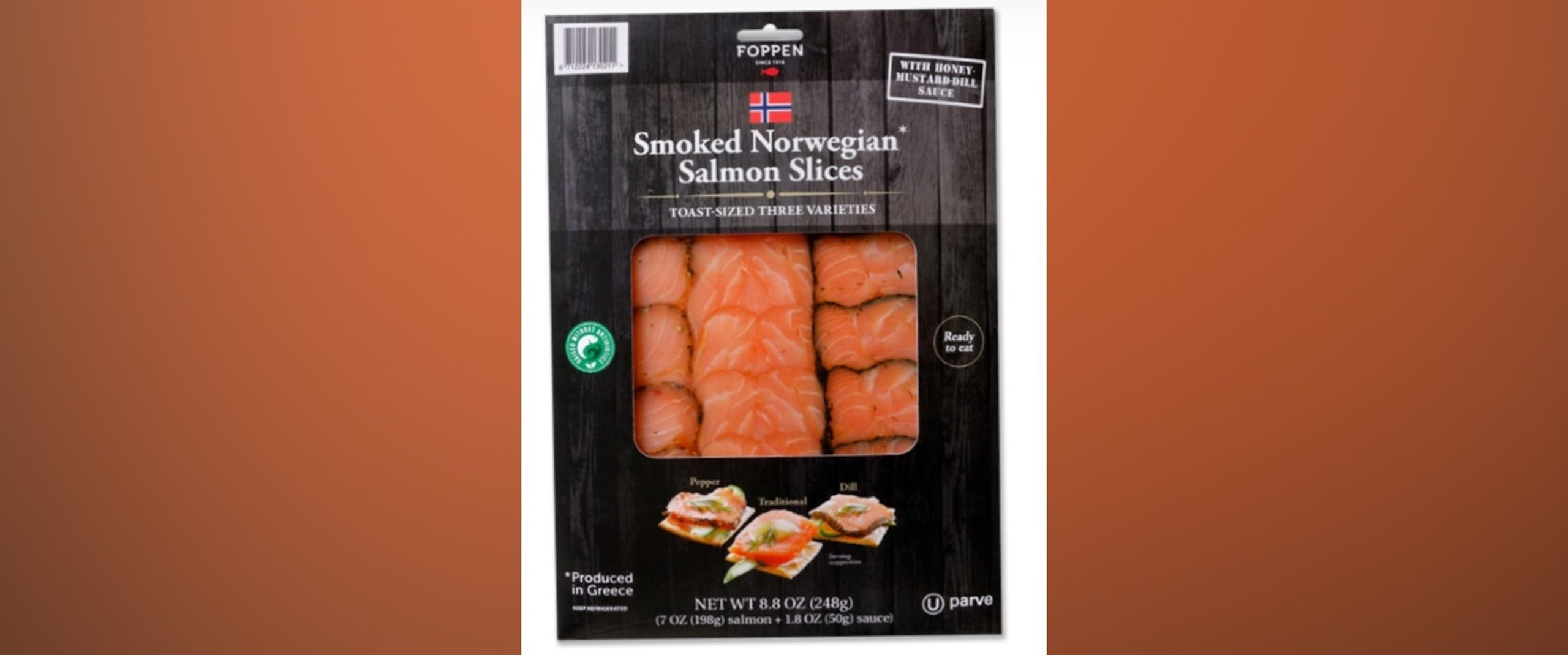For American consumers who enjoy adding slices of smoked salmon to a bagel or other breakfast dishes, it’s time to check the refrigerator, because one producer of the famed Norwegian export has recalled products from stores in 15 states.
Norwegian smoked salmon recalled in 15 states
Netherlands-based Foppen Seafood issued a recall for one lot of its Smoked Norwegian Salmon Slices after routine testing revealed the presence of Listeria monocytogenes, the company announced in a statement dated June 22 and shared on the U.S. Food and Drug Administration website Wednesday.
“At Foppen Seafood, we operate to the highest standards of health, safety and quality control. We have taken immediate steps to address this isolated incident and we are collaborating closely with Kroger and the U.S. Food and Drug Administration (FDA) to ensure a swift resolution,” the company stated.
What smoked salmon products are impacted by the recent recall?

Foppen Seafood is recalling Smoked Norwegian Salmon Slices – Toast sized, 8.1 oz, identified by lot number 412, sold in Kroger and Payless Supermarkets across 15 states.
Foppen Seafood
Impacted products include “toast-sized” Foppen Smoked Norwegian Salmon Slices sold in 8.1-ounce packages with the UPC code 840137100002.
The lot number 412 can be found in the clear plastic window cutout on the front of the package, according to the company.
Where recalled smoked salmon products were sold

In this Oct 14, 2022, file photo, a Kroger supermarket is shown.
Elijah Nouvelage/AFP via Getty Images, FILE
The affected products were sold in Kroger and Payless Supermarkets across 15 states, including Alabama, Arkansas, Georgia, Illinois, Kentucky, Louisiana, Michigan, Missouri, Mississippi, Ohio, South Carolina, Tennessee, Texas and West Virginia.
What consumers can do if they purchased recalled smoked salmon
“Consumers should discard product or return for refund. Customers who have purchased the affected Smoked Norwegian Salmon Slices with lot number 412 are advised not to consume the product,” the company said in its recall announcement. “They should return it to the place of purchase for a full refund or replacement.”
Customers with additional questions or concerns are encouraged to contact Foppen Seafood directly via phone at (844) 646-0928, 24 hours a day, seven days a week, or by email at [email protected].
Symptoms, side effects of Listeria monocytogenes

STOCK IMAGE/Getty Images
According to the Centers for Disease Control and Prevention, listeria can cause severe illness “when the bacteria spread beyond the gut to other parts of the body” after a person consumes contaminated food. Those at higher risk include pregnant people, those aged 65 or older, or anyone who has a weakened immune system, the CDC says.
“For people who are pregnant, Listeria can cause pregnancy loss, premature birth, or a life-threatening infection in their newborn,” the agency states on its website. “For people who are 65 years or older or who have a weakened immune system, Listeria often results in [severe illness that may lead to] hospitalization and sometimes death.”
Other people can be infected with listeria, but rarely become seriously ill, according to the FDA.
Editor’s Picks
According to the CDC, anyone infected with listeria may experience “mild food poisoning symptoms” such as diarrhea or fever, and many recover without antibiotic treatment.
The CDC has advised people to contact a health care provider if they think they may have eaten contaminated food and are experiencing related symptoms.
“You should seek medical care and tell the doctor about eating possibly contaminated food if you have a fever and other symptoms of possible listeriosis, such as fatigue and muscle aches, within two months after eating possibly contaminated food,” the agency states on its website. “This is especially important if you are pregnant, age 65 or older, or have a weakened immune system.”
Kroger, one of the largest grocery store chains in the United States, has issued a recall of smoked salmon in 15 states due to potential health risks. The recall affects various brands and types of smoked salmon sold at Kroger locations in states including Ohio, Kentucky, Indiana, and Michigan.
The recall was initiated after it was discovered that the smoked salmon may be contaminated with Listeria monocytogenes, a bacterium that can cause serious and sometimes fatal infections in young children, elderly individuals, and those with weakened immune systems. Symptoms of Listeria infection include fever, muscle aches, nausea, and diarrhea.
Customers who have purchased smoked salmon from Kroger are advised to check the packaging for the affected products and to return them to the store for a full refund. It is important to note that no illnesses have been reported in connection with the recalled smoked salmon at this time.
Kroger is working closely with the Food and Drug Administration (FDA) to investigate the source of the contamination and to ensure that all affected products are removed from store shelves. The company is also taking steps to prevent future incidents of contamination and to ensure the safety of its customers.
In the meantime, customers are urged to exercise caution when consuming smoked salmon and to be aware of any symptoms of Listeria infection. It is always important to follow proper food safety practices, such as washing hands before handling food and keeping perishable items refrigerated.
For more information on the recall of smoked salmon at Kroger, customers can visit the company’s website or contact their local store for assistance. By staying informed and taking appropriate precautions, customers can help protect themselves and their families from potential health risks associated with contaminated food products.



